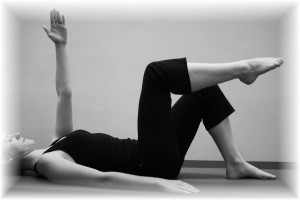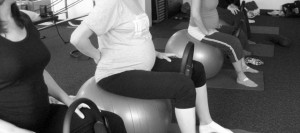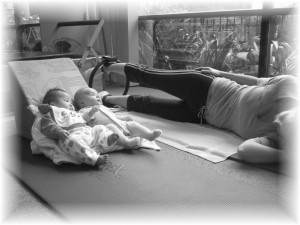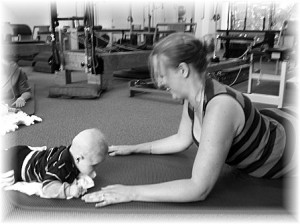exercises

This page will contain my most favourite links to exercise options for women throughout all life stages. I will cover specific areas where advice on pelvic floor exercises and general exercises may vary depending on circumstances.
All exercise for women who have pelvic floor problems should be tailored to their specific needs after careful assessment. Firstly a little read and plug for Women’s health Physios ; Regular exercise is extremely important, especially with the growing obesity crisis, and it would be tragic if an easily-avoided issue such as Stress Urinary Incontinence (SUI) was a barrier to exercise for women. However, women need to know that certain exercises are likely to increase the risk of pelvic floor dysfunction, including SUI and pelvic organ prolapse (POP)
Just a link to LOTS of videos of exercises
But…first of all lets start with some breathing…
Pre natal
Post natal- Vaginal delivery – Caesarean section
Prolapse
Pelvic pain
Pre- post pelvic / abdominal surgery
Pre Natal
It’s great to be active and stay fit while you’re pregnant. Check with your midwife or doctor first to make sure there are no health problems to prevent you from exercising. If there are no problems, try to do 30 minutes of moderate exercise, like walking, on most days of the week.
Regular exercise can:
• help you stay at a healthy weight
• help you relax
• help make you stronger and fitter – good for coping with pregnancy, labour and being a parent
• help decrease discomforts like back pain and varicose veins that affect some pregnant women
• help decrease the chance of getting a type of diabetes (gestational diabetes) some women get in pregnancy, when combined with a healthy diet.
If you haven’t been physically active before pregnancy, it’s good to begin gentle exercise. Walking, swimming and aqua classes (exercises in water) are good.
Come and join my pre- natal Pilates “powering through your pregnancy’.
At Sports Focus Physiotherapy Northbridge I provide small group Pre-natal Pilates classes for women 12-38 weeks pregnant. I will progress you through stretches and strength exercises specifically designed for each trimester of your pregnancy – using mat, gym ball and small apparatus
Hug your baby: learn how to stabilise and strengthen from the inside out: understand the role your deep TVA transverse Abdominus has in stabilising your pelvis together with your gluteal (butt) muscles and how to release, lengthen, breathe and prepare for your labour
• Learn specific exercises and stretches to guide you through labour
• Get in touch with your Pelvic Floor
• Maintain your ‘core’ control and improve your health as your
body shape changes
• Develop awareness, understanding and knowledge of your body and … POWER through your pregnancy!
The class is held Monday evenings, 7-8pm $30.00 per class or pre-pay your program and save – just $125.00 for 5 weeks!
To join the class or for more information come in and see us or call Northbridge on 9958 8986.
Post natal
My general advice for mums in the first 6 weeks post natal both vaginal and caesarean section is to
- Establish confident breast feeding
- Get plenty of support to help you with baby and household chores

- Rest and sleep together with pelvic floor and deep tummy activation
- Posture ++ when lifting and holding and nursing baby
- Walking when you feel like it
- Get help quickly from your Obstetrician, Midwife Maternity unit if you have any medical concerns early on
- Contact your early childhood nurse, lactation consultant, breast feeding clinic if you are having problems
- Start my mums and bubs class at 6 weeks after your check up
This link to Vic. gov on post natal exercise is a good basic guide line.
Some of my other favourite links are:
- early post natal days and baby handling
- early post natal exercises
- posture and deep core activation

- early post natal gym ball exercises
- post natal exercise guidelines from pelvic floor first
- returning to exercise
- some great blogs from Diane Edmonds on return to sport after birth
- core exercises
- pelvic floor first
- safe cardio exercise
- safe resistance exercise
- better health channel post natal exercise
So what about the mums who are 3 months + or 12 weeks post natal? can you get back to your previous exercise now!!
- return to exercise
- what about running. This is a great blog from Jessics Reale Doctor of Physical Therapy (DPT) and Board-Certified Specialist in Women’s Health (WCS) practicing in Atlanta giving some perspective.
- More info on running from one of our great Women’s health Physios doing a guest blog on Sue’s website
Prolapse
It is really important that you get a full pelvic floor assessment so that you know your individual risk – the risk of prolapse problems is increased in women with; poorly functioning pelvic floor muscles, after instrumental vaginal delivery, existing prolapse and after prolapse surgery.
Firstly Michelle’s website again a vast resource on safe pelvic floor exercise
- https://www.pelvicexercises.com.au/ab-workouts-for-women/
- https://www.pelvicexercises.com.au/osteoporosis-exercises/
- https://www.pelvicexercises.com.au/best-exercise-for-weight-loss
- Cycling and swimming exercises rank highly for energy burning
- https://www.pelvicexercises.com.au/curves/
This page is a work in progress…..